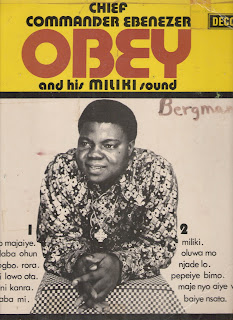 |
| Music from the Far North The Living Tradition series produced by Deben Bhattacharya ARGO, ZRG 533, Made in England, 1967 |
They're not quite the true academic field recording records, but much more authentic than the Souvenir from... records tourists used to gather. They're field recordings that are sold commercially. They're an important part of my record collection which is becoming more and more like a stamp collection that doesn't have a topic but holds stamps from all over the world. A collection that's more about diversity than about depth. Records like the one above were owned by people that had a serious interest in some geographical entity, not quite an academic interest but certainly well beyond a tourist's interest in the music of a region. They're records of traditional music, typically played not by the areas biggest stars, but not by the remote and isolated rural population either. The musicians are the in-between musicians, semi-professional, well regarded locally, that would perform in regional cultural festivals. Music from the Far North features traditional music out of Finland and from Sweden. It features the solemn Finnish music on the kantele, and some wild fiddling gatherings from Sweden. There's enough excitement in the music on this record to last a midsummer night but I chose to share here today the two Lappish joiks that are featured at the end of the record. They're not the most interesting joiks I've ever heard, they're not the best tracks on the record, but they're joiks. There aren't that many joik recordings in the world. Joiks are the age old musical singing traditions of the Sami people of Northern Scandinavia. The singing sounds a lot like the chanting of Native Americans. The Sami are remote descendents of the Chukchi people, a handful of whom are believed to have crossed the Bering Sea and are the common ancestors of all American Indians.
The singer of the joiks featured here is Karin Stenberg. She was recorded by Deben Bhattacharya in or before 1967 in Arvidsjaur, Sweden . The first example is a joik about reindeer and the second about mountains.
p.s. I've never been to Sweden but I have a Volvo. I learned yesterday that if you buy a new Volvo, directly from the factory, they'll fly you over, put you up, and ship the car back for you. Now my Volvo is getting pretty old...


